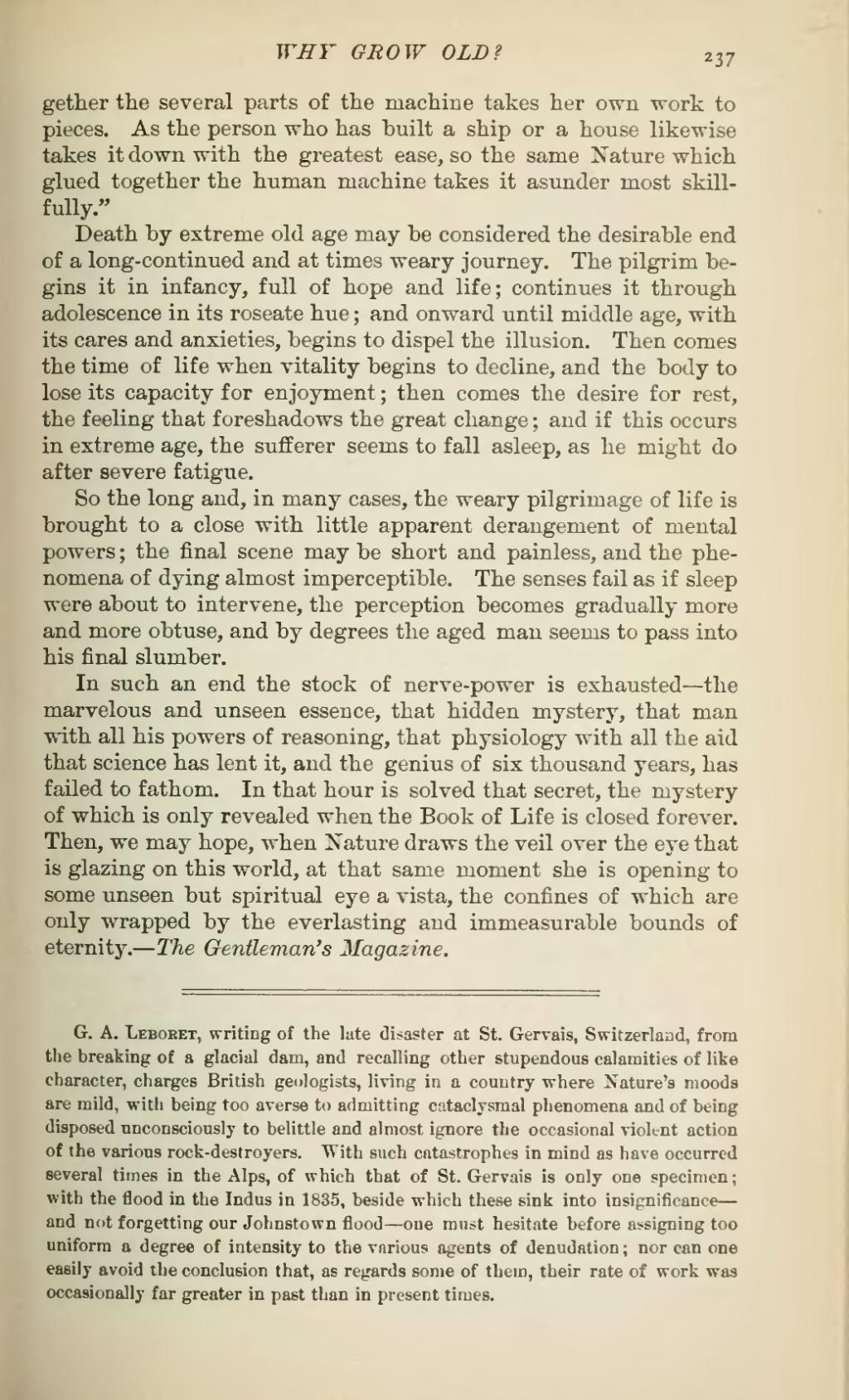gether the several parts of the machine takes her own work to pieces. As the person who has built a ship or a house likewise takes it down with the greatest ease, so the same Nature which glued together the human machine takes it asunder most skillfully."
Death by extreme old age may be considered the desirable end of a long-continued and at times weary journey. The pilgrim begins it in infancy, full of hope and life; continues it through adolescence in its roseate hue; and onward until middle age, with its cares and anxieties, begins to dispel the illusion. Then comes the time of life when vitality begins to decline, and the body to lose its capacity for enjoyment; then comes the desire for rest, the feeling that foreshadows the great change; and if this occurs in extreme age, the sufferer seems to fall asleep, as he might do after severe fatigue.
So the long and, in many cases, the weary pilgrimage of life is brought to a close with little apparent derangement of mental powers; the final scene may be short and painless, and the phenomena of dying almost imperceptible. The senses fail as if sleep were about to intervene, the perception becomes gradually more and more obtuse, and by degrees the aged man seems to pass into his final slumber.
In such an end the stock of nerve-power is exhausted—the marvelous and unseen essence, that hidden mystery, that man with all his powers of reasoning, that physiology with all the aid that science has lent it, and the genius of six thousand years, has failed to fathom. In that hour is solved that secret, the mystery of which is only revealed when the Book of Life is closed forever. Then, we may hope, when Nature draws the veil over the eye that is glazing on this world, at that same moment she is opening to some unseen but spiritual eye a vista, the confines of which are only wrapped by the everlasting and immeasurable bounds of eternity.—The Gentleman's Magazine.
